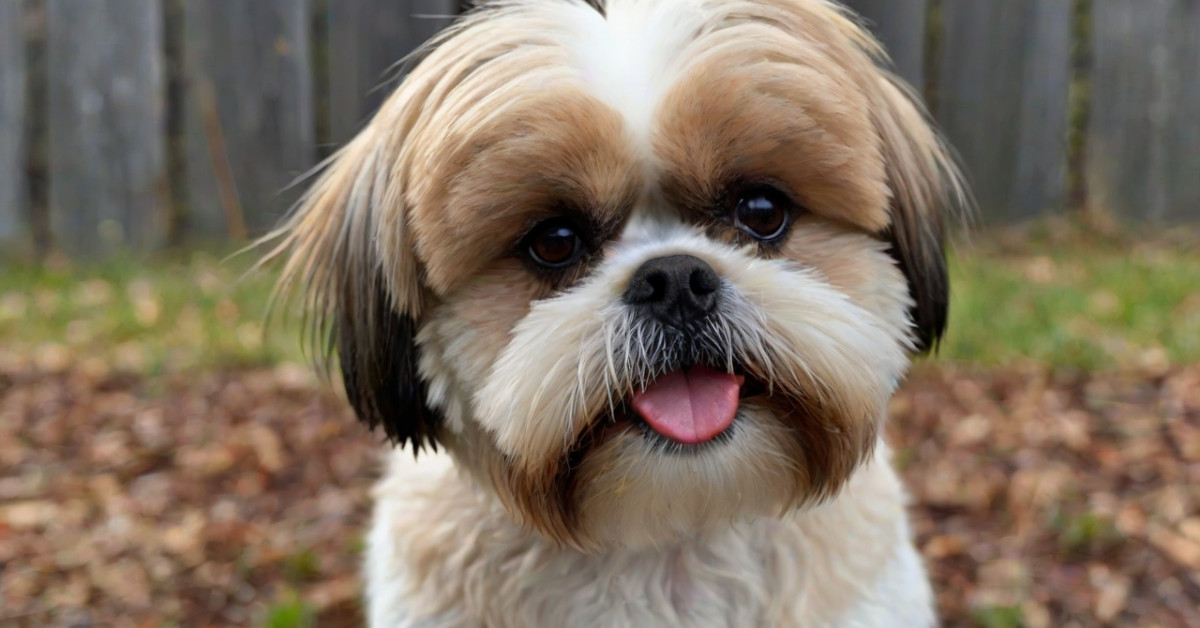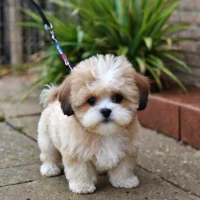Are Shih Tzus More Aggressive Than Other Dogs? Breed Facts & FAQ
Ever since I was a kid, I’ve always had a soft spot for Shih Tzus. Their adorable faces and flowing coats are irresistible, but lately, I’ve been hearing whispers that Shih Tzus might be more aggressive than other dogs. This got me thinking of my aunt’s Shih Tzu, Pookie, who wouldn’t hurt a fly – unless it buzzed too close to his nose, then all bets were off!
The Nature of Shih Tzus
Shih Tzus, with their regal lineage and charming demeanor, are not generally known for being aggressive. Traditionally bred as companion dogs for Chinese royalty, they embody grace and devoted companionship. However, like any breed, they can exhibit behaviors that might be interpreted as aggressive under certain conditions.
Common Misconceptions
One common myth about Shih Tzus is that their small size makes them more likely to be yappy and aggressive. This just isn’t true. While they can be protective, especially around strangers, this behavior stems more from their protective nature rather than inherent aggression. Remember my friend’s Shih Tzu, Bella? She barked at everyone during the first few days but turned into a snuggle-buddy once she felt safe.
Factors Influencing Behavior
Several factors can influence a Shih Tzu’s behavior:
- Genetics: Some traits are inherited, making a few Shih Tzus more prone to certain behaviors.
- Socialization: Proper socialization from a young age can mitigate aggressive tendencies. Imagine taking your pup to a busy park; the sights, sounds, and interactions teach them how to behave around others.
- Training: Consistent and positive reinforcement techniques can greatly influence a dog’s behavior. I’ve seen it first-hand with my neighbor’s Shih Tzu, Max. He was nippy but calmed down remarkably with gentle training.
- Health Issues: Pain or discomfort due to health problems can make any dog irritable. Always keep them checked up!
Signs of Aggression
Recognizing aggression in Shih Tzus, or any breed, involves watching for specific behaviors:
- Growling: A clear warning sign.
- Baring teeth: Another strong indicator.
- Snapping or biting: Obvious signs.
- Stiff body posture: They might seem frozen or overly alert.
Managing Aggression
If a Shih Tzu shows aggression, here’s what you can do:
- Professional Training: Seek a professional dog trainer’s help.
- Behavioral Therapy: In some cases, consulting an animal behaviorist could offer solutions.
- Routine Exercise: Keeping them physically stimulated can reduce pent-up energy that might lead to aggression.
Real-Life Experiences
Honestly, I’ve had my fair share of interactions with Shih Tzus and various other breeds throughout my career as a vet. There was this one time – during a particularly hectic clinic day – when a Shih Tzu named Tofu came in. She was a bit nippy because of an ear infection. Once treated, her mood dramatically improved. It goes to show how sometimes temperament may be linked to underlying health conditions.
FAQ About Shih Tzus
Are Shih Tzus good with Kids?
Totally! Shih Tzus generally adore kids and make excellent family pets. Always supervise interactions just to be safe.
Can Shih Tzus be left alone for long periods?
Not advisable. Shih Tzus love company and can become anxious if left alone too long.
Do Shih Tzus require grooming?
Yes, indeed! Their luxurious coats need regular grooming. Trust me, it’s worth it. Pookie, my aunt’s Shih Tzu, loves his grooming sessions.
Random Shih Tzu Facts
Did you know Shih Tzus were initially bred to resemble lions? 🦁 Also, their name means “lion dog” in Mandarin. Fascinating, right?
Personal Reflections
Overall, Shih Tzus can be one of the most affectionate and loyal companions out there. The key lies in understanding and addressing their needs. After all, even our furry friends have their quirks. Thank you for taking the time to read my insights. Remember, every paw print has a tale!
Stay pawsome! 🐾










